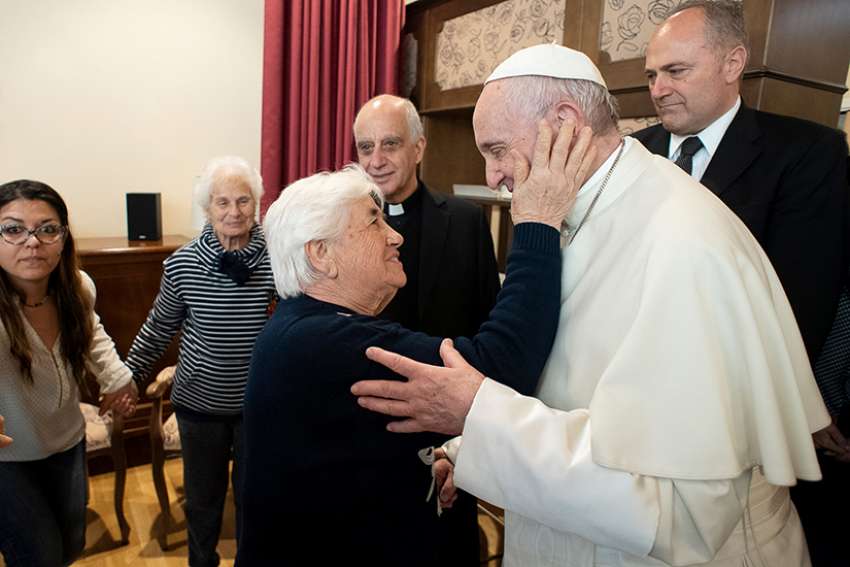Slowly, Ottawa is awakening to this coming health-care tsunami, but the looming crisis is more than a government problem, a fact illustrated by the stories featured in The Register’s special coverage this week.
Dementia is devastating for the person afflicted but it is also crippling for families, who often serve as principal caregivers for the ailing. They need government help, without doubt, but like the sufferer they also need to feel the loving embrace of communities and the Church.
Dementia and the Church have something in common in that they share a grey-haired demographic. These are the people in the pews. Credible projections tell us this age group is about to experience a dementia spike. Governments need to prepare for that day, as does the Church.
From the Canadian Conference of Catholic Bishops, to dioceses across the country, to individual parishes, strategies are required to complement public health initiatives and ensure pastoral readiness for the dark cloud that is just over the horizon. What that means, in the Christian tradition, is education and training so that dementia sufferers and caregivers are always accorded dignity, respect and accommodation.
The human tendency is to stigmatize or shun those who struggle to conform, but church communities can never fall to that temptation. They must alway be welcoming places that demonstrate patience, understanding and kindness.
Beyond insisting on this fundamental Christian response, treating dementia sufferers as equals, surrounding them in communities of compassion and care, is complementary to the Church’s opposition to euthanasia and assisted suicide. When people are treated with dignity, they are less likely to feel like a burden and seek an early death.
A year ago, the federal government held a conference for dementia patients, caregivers, researchers and health care professionals. It found that a person diagnosed with dementia is typically told just to go home and settle their affairs. Seldom are they connected with support services. Usually they are excluded from discussions about treatment and generally regarded as if they barely exist, as if their life is already over.
That is wrong, of course. Although this dreadful disease robs sufferers of cognitive abilities it does not diminish their human dignity. They are entitled to the best quality of life possible. That requires many types of medical and financial support from various public agencies, but it also requires the emotional and spiritual support of parish communities.
Dementia sufferers, like all who suffer, need to know they’ll find that support at their church. Here, they won’t be ignored or treated as a burden. They’ll be valued and welcomed, always.
Support The Catholic Register
Unlike many other news websites, The Catholic Register has never charged readers for access to the news and information on our site. We want to keep our award-winning journalism as widely available as possible. But we need your help.
For more than 125 years, The Register has been a trusted source of faith based journalism. By making even a small donation you help ensure our future as an important voice in the Catholic Church. If you support the mission of Catholic journalism, please donate today. Thank you.


